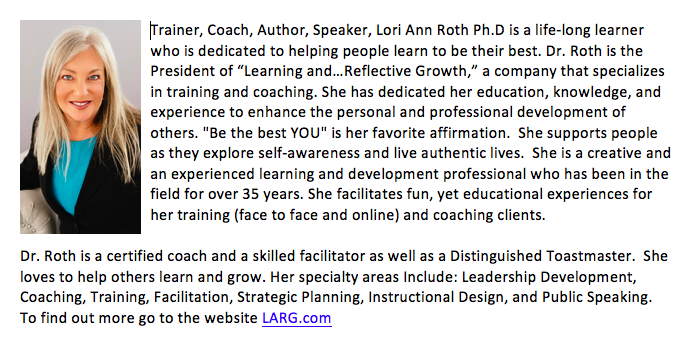Getting good grades or the best grades in college sets people up for success in the workforce. I wanted to share some experiences I’ve had as a professor to help those of you (or your friends and family) who are matriculating in a degree or taking classes.
I have been an adjunct professor for
- 7 years at State College of Florida
- 5 years at George Mason University
- 3 years at University of Maryland Global Campus
So, for 15 years I have taught many students at three different colleges or universities around the U.S. I have noticed a theme about the students who get the best grades. My theory is that the busiest students get the best grades. Here are just three examples of people who have very busy lives and still get good grades.
Examples
- Susan is a mom of 3 children, she works full time, and she is going to school. She is an older student, which may make a difference because she is more mature. She does very well in the class, in fact, she gets her assignments done early.
- Brock is a server/bartender at a waterside restaurant locally. He works as much as possible and gets as many shifts as he is able. He also is taking two classes this semester and he has a girlfriend and is very social with his friends.
- Ariena is a dual enrollment student. She is a senior in High School and taking my career explorations class at the college. She has a part time job at the library and is hoping to become a librarian. She also volunteers with her church.
Theories
While it might seem counterintuitive that students with the most on their plate would excel academically, I have some specific theories about why this phenomenon happens that I would like to share with you.
Highly Developed Time Management Skills
Busy students often have to become masters of time management. Juggling extracurricular activities, part-time jobs, social lives, and academic responsibilities forces them to prioritize tasks, schedule effectively, and minimize procrastination. This honed ability to allocate their time efficiently means that when they do dedicate time to studying, it’s often focused and productive. They are less likely to waste time on less important activities. For example, a student balancing debate club, volunteering, and two part-time jobs likely plans specific blocks of time for studying each subject, rather than vaguely intending to “study later.”
Stronger Motivation and Purpose
Students who are actively involved in multiple areas often have a clearer sense of purpose and drive. They might be involved in activities that align with their passions and future goals, which can translate into a greater intrinsic motivation to succeed academically as well. They might see their education as a crucial stepping stone to achieving their broader aspirations. For instance, a student deeply involved in a pre-med club and volunteering at a hospital might be more motivated to excel in their biology and chemistry courses because they see the direct relevance to their future career.
Learn how to Learn best
Everyone learns differently and at a different pace. Some of us like to read, take notes, or use an audio book. There are many ways to learn and finding the best way that YOU learn will help with learning faster and more efficiently. Most professors offer multiple ways to understand the material. They provide the book, books online, videos, study guides, and sample quizzes. Each student does not have to use all the resources, but instead, use the resources that will best help them specifically. This saves time and effort.
Efficient Learning Strategies
Faced with limited time, busy students often develop more efficient and effective learning strategies. They might be more likely to focus on understanding core concepts rather than rote memorization, utilize active recall techniques, and seek help strategically when needed. They understand that their study time is precious and strive to maximize its impact. For example, instead of passively rereading notes, a busy student might quiz themselves frequently or create concise summaries to quickly grasp the key information.
Enhanced Focus and Concentration
Paradoxically, having many commitments can sometimes lead to better focus during study sessions. When dedicated study time is a limited resource, students are often more mentally present and less prone to distractions. They know they have a specific window to accomplish their academic tasks before needing to shift to another obligation. This focused attention can lead to deeper understanding and better retention of information.
Networking and Resourcefulness
Busy students are often more connected and resourceful. Their involvement in various activities exposes them to a wider network of peers, mentors, and resources. They might be more likely to form study groups, seek advice from professors, and leverage available support systems because they are accustomed to actively engaging with different communities.
Resilience and Adaptability
Juggling multiple responsibilities builds resilience and adaptability. Busy students learn to cope with stress, manage setbacks, and adjust their plans when necessary. These skills can be invaluable in navigating the challenges of academic life, such as difficult assignments or unexpected exams. They are less likely to get derailed by minor obstacles.
On the other hand…
It’s important to note that this isn’t a universal rule, and some students thrive with a less packed schedule. Additionally, being too busy can lead to burnout and negatively impact grades. The key seems to be finding a healthy balance where engagement in extracurriculars and other activities fosters these beneficial skills without overwhelming the student. The “busyness” itself isn’t the magic ingredient; rather, it’s the development of effective strategies and mindsets that often accompany a busy lifestyle that can contribute to academic success.
One of my students included this quote in his informational interview with an Aerospace engineer. I thought it was so inspirational that I needed to share it.
“Stay disciplined, work hard, and keep your head down. Always finish a task that is given to you and do it like you love it. That is true discipline, and that is not only the key in Aerospace and aviation but also in life.”
– Robinson David Garcia (Air Force Pilot)
Have you or people you know taken courses even though you have a packed life? What are your thoughts? Please let me know in the comments.
#learning #student #college




